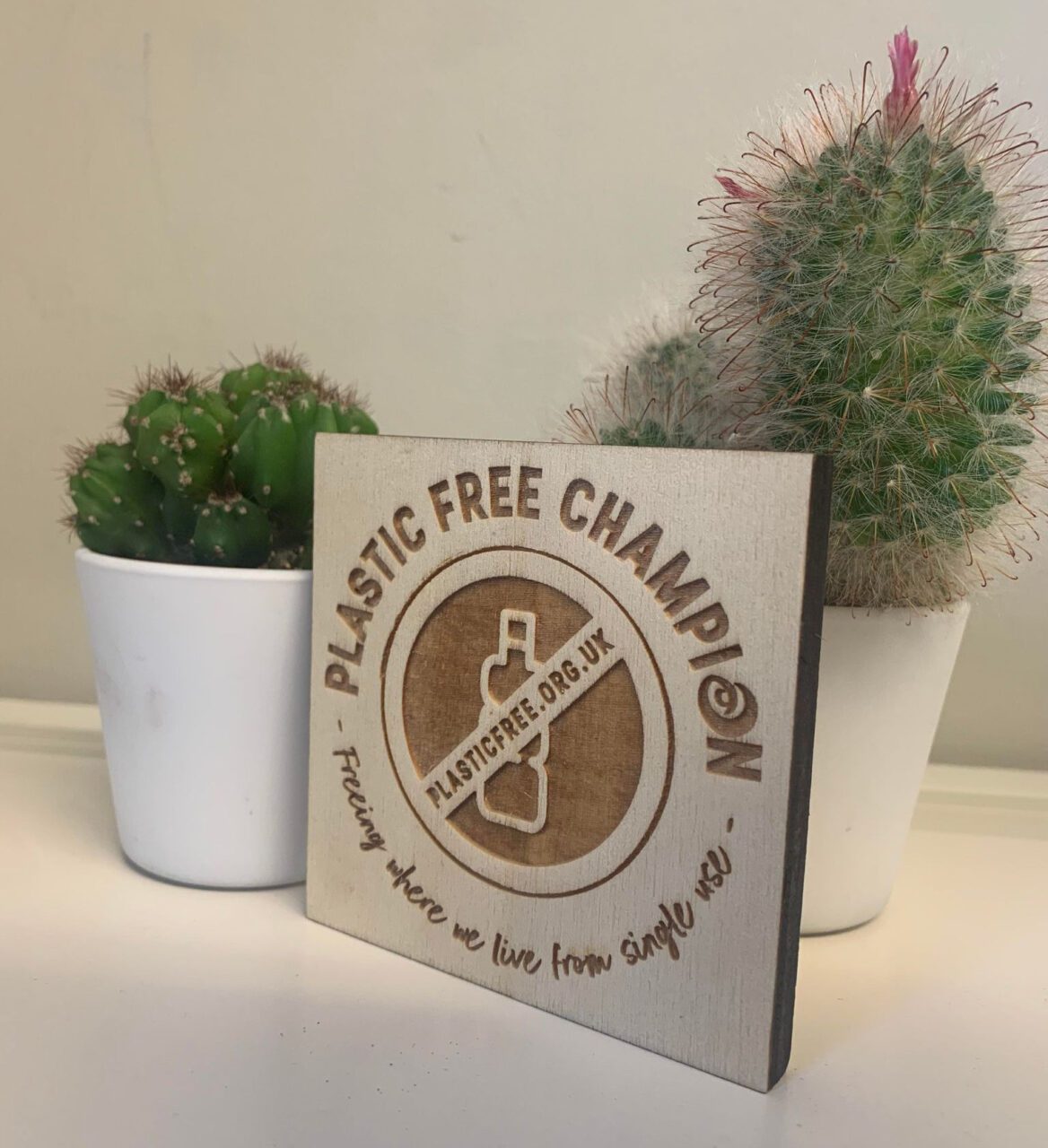Plastic Champions: How to create a plastic free workplace

Plastic Free July is a global movement that helps millions of people be part of the solution to plastic pollution so we can have cleaner streets, oceans, and beautiful communities.
Will you be part of Plastic Free July by choosing to refuse single-use plastics?
This month, we are spreading awareness of plastic pollution and hopefully encouraging and inspiring you to make your workplaces more environmentally friendly by encouraging team members to reduce single-use plastic.
There are many ways to enforce a plastic free workplace.
Here are some of our ways as plastic free champions:
SodaStream for the office to reduce single-use bottles
Alternative packaging for our stationary and catering
Second-hand furniture for the office
Providing reusable cutlery and cups for team
Accessible kitchen in building for team to make their lunch and refreshments
Bulk buying supplies to reduce packaging
The UK only recycles 14% of recyclable plastic and 50% of the plastic we do recycle is never actually recyclable because it has not been properly disposed of. So the answer is simple: educate yourself! Look at your local council’s recycling policy so you know what is recyclable and what isn’t and read up on how to go plastic free – once you have done the research and started making small changes, it really isn’t as confusing as what you think.
As an individual, there are small things you can do too such as using a reusable water bottle and having supplies handy to avoid buying carrier bags and coffee cups. It is all about reducing and reusing. It might just come down to being a little bit more organised. Remembering your reusable bags for groceries to avoid buying more plastic bags when you get to the store or always keep a spare one in your car or pocket just in case. Give yourself time to remember things you could need for the day.
As an organisation, there a a tonne of ways you can reduce the use of plastic. To name a few:
Make it a rule not to use disposable plastic water bottles – encourage staff to bring in their own water bottles instead of buying Evian or Highland Spring plastic water bottles to reduce recycled waste.
Provide reusable cutlery – supply a selection of reusable cutlery for staff to wash and reuse whenever they have lunch or a snack. Avoiding plastic cutlery saves on money and waste so it’s pretty much a win-win!
Encourage staff to have coffee in the office with a kettle – instant coffee or tea in a ceramic mug is a lot more environmentally friendly than disposing coffee cups every day
Talk to your suppliers – plastic packaging is the biggest market for single-use plastics and now accounts for nearly half of all plastic waste generated. Majority of this does not get recycled. Talk to your suppliers about their level of plastic usage and come to a solution together
Plastic-free lunch – to create a fully plastic-free workplace you have to target the damage of the fast-food lunch culture. This means ‘food-to-go’ packaging such as meal deals, read meals and pot noodles. Encourage staff to bring in home-made lunches and if there is a kitchen, make it accessible for staff to cook or prepare their lunch at work.
Reward employees – workplace benefits are now a common occurrence, but what if you created them with an environmental impact in mind? Offer employees a bonus or a benefit if they can make changes in their lives to go plastic free
Encourage good recycling – create clear recycling rules of what goes in what bin so you are creating a recycling footprint
Support your community – volunteering in your community to combat plastic pollution in your local area shows you really care. It could simply be getting a team of staff from your organisation to volunteer once a week to pick up litter!
Pre-cycle your office – Instead of buying new furniture for the office, why not get second hand furniture? It’ll save you money and someone else waste. Once you’re finished with your old office furniture, donate it to charity or use Facebook marketplace to see if anyone would find any use out of it.
Centralise supplies – set up a centralised supply library where staff can help themselves to stationary when needed. This can make a small difference in the amount of plastic coming into the office.
As an organisation, there are honestly a lot more than 10 ways you can create a plastic free workplace. Find out more about the Plastic Free Foundation and how to be more plastic free and learn more about how to help the environment more generally at work through the RSPB.
Take the plastic free July challenge like Jo our Marketing Assistant and receive tips and advice via email to keep you motivated!
_________________
Talbot Jones Ltd is a family-run chartered insurance heritage specialist in the Third Sector and Professional risks. Get in touch for free insurance advice, review or quotation.






